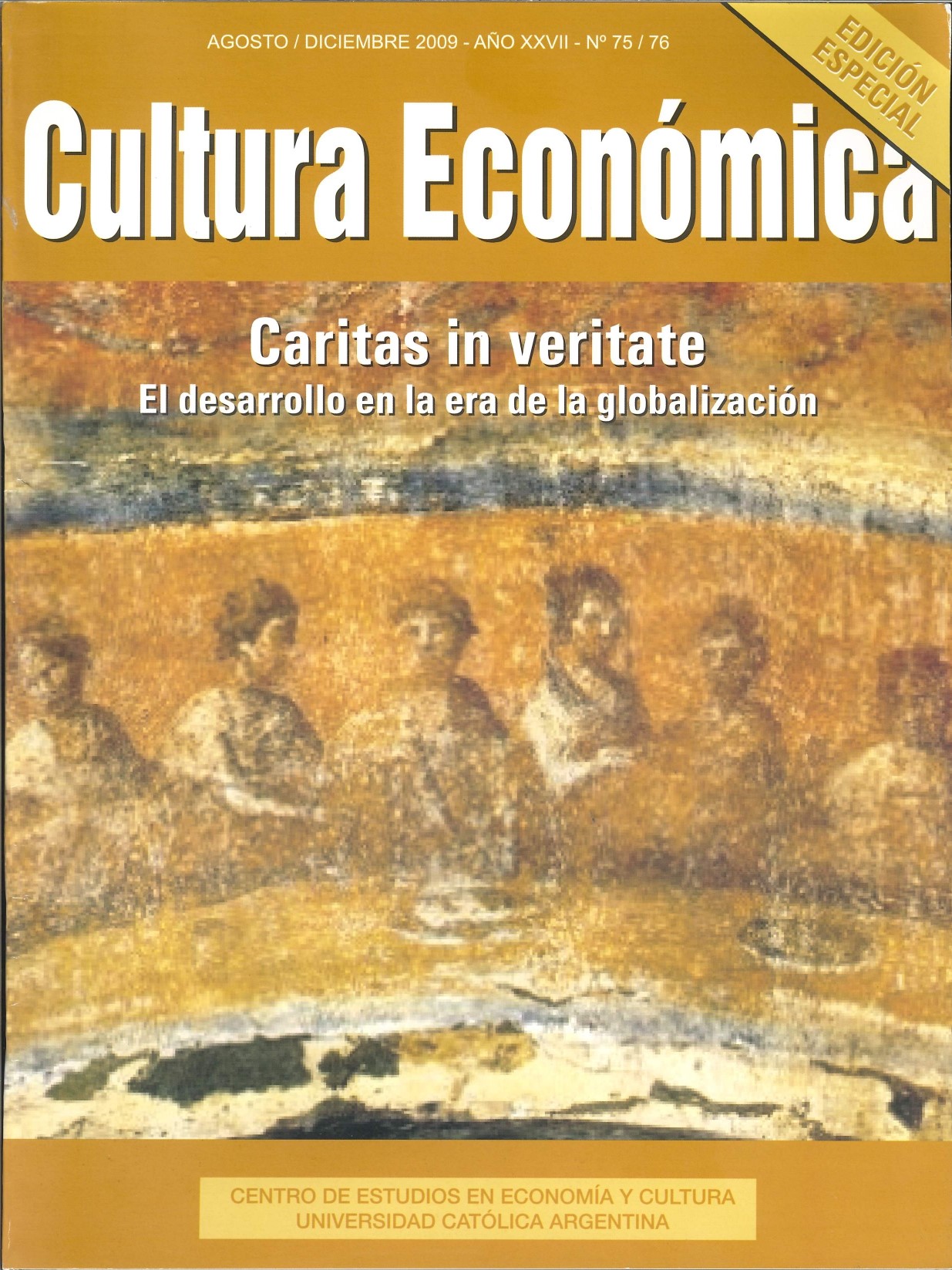Human Development: Benedict XVI vs. Amartya Sen
Keywords:
development, capabilities, Amartya Sen, religious dimensionAbstract
The concept of “integral” human development discussed in Caritas in veritate shows many similarities with the concept of human development adopted by the UNDP which is rooted in the “capability approach” pioneered by Amartya Sen. However, it offers a radical addition:
the openness to transcendence, from which derives a transformed understanding of human reason and human freedom. Adding the religious dimension to the concept of development does not merely add an extra dimension alongside the other dimensions –social, economic,
cultural, political and technological– of development, but it introduces a different anthropology.
Downloads
References
Alkire, S. (2002), Valuing Freedoms, Oxford University Press, Oxford.
Drèze, J. y Sen, A. (2002), India: Development and Participation, Oxford University Press, Delhi.
Nussbaum, M. (2000), Women and Human Development, Cambridge University Press, Cambridge.
Sen, A. (2004), “Capabilities, Lists and Public Reason: Continuing the Conversation” en Feminist Economics 10(3), pp. 77-80.
Sen, A. (2009), The Idea of Justice, Allen Lane, Londres.
Downloads
Published
How to Cite
Issue
Section
License













